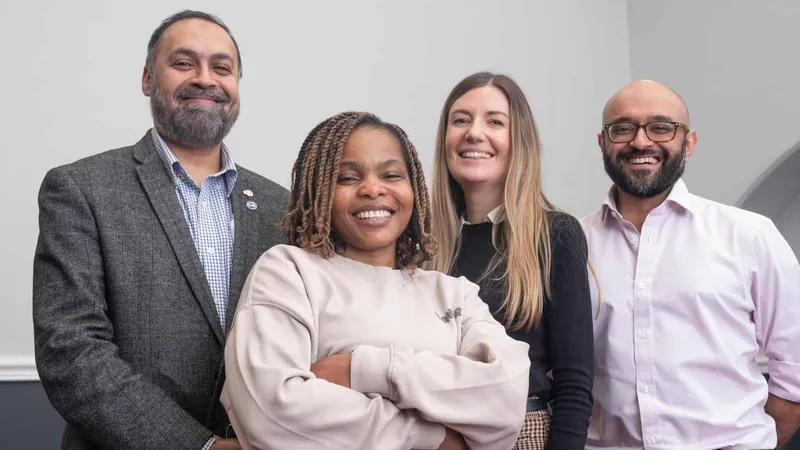
Groundbreaking Surgery: UK Doctors Remove Brain Tumor Through Eye Socket!
2025-01-20
Author: Sarah
Groundbreaking Surgery: UK Doctors Remove Brain Tumor Through Eye Socket!
In a remarkable surgical breakthrough, a team of doctors in Leeds, UK, successfully removed a brain tumor through the patient's eye socket using a revolutionary technique known as the endoscopic trans-orbital method. The entire procedure took just three hours, showcasing the efficiency and precision of this innovative approach.
This cutting-edge technique is heralding a new era for patients with tumors previously deemed inoperable due to their challenging locations. Traditional brain surgeries often involve invasive procedures requiring significant skull removal and shifting of brain tissue, which increases the risk of severe complications, including seizures and longer recovery times.
The patient, Kaviya, a dedicated nurse from Leeds, had been suffering from debilitating headaches when she was diagnosed with a meningioma—a type of brain tumor—in 2023. A second meningioma was identified shortly thereafter. Faced with the agonizing pain and the risks associated with conventional surgery, Kaviya chose to pursue this pioneering method.
Post-surgery, Kaviya has made a commendable recovery and is back at her job as a stroke rehabilitation nurse, illustrating the potential for patients to return to their normal lives with minimal disruption.
Before moving forward with this innovative surgery, the surgical team at Leeds Teaching Hospitals NHS Trust consulted with experts from Spain to ensure the best outcome. Neurosurgeon Asim Sheikh praised the approach, stating, "This way, we're not even touching the brain. It's a hard-to-reach area, and this allows direct access without creating any pressure points on the brain."
Jiten Parmar, a maxillofacial surgeon involved in the procedure, adapted the technique specifically for this case. By carefully cutting a small section of the outer wall of the eye socket, the team gained optimal access to the tumor. "We innovated a new technique, which I think is unique to Leeds, to make the operation much easier," Parmar noted.
The surgical team prepared extensively for this innovative procedure, practicing multiple times on 3D models and in cadaver labs, ensuring they were ready for this complex operation. As advancements in surgical techniques continue to evolve, this successful case not only highlights the potential dangers of traditional methods but also opens up new avenues for patients facing similar challenges.
With Kaviya's remarkable recovery and the successful application of this procedure, the medical community is buzzing with excitement, suggesting that this technique may become a game-changer in the field of neurosurgery.





 Brasil (PT)
Brasil (PT)
 Canada (EN)
Canada (EN)
 Chile (ES)
Chile (ES)
 Česko (CS)
Česko (CS)
 대한민국 (KO)
대한민국 (KO)
 España (ES)
España (ES)
 France (FR)
France (FR)
 Hong Kong (EN)
Hong Kong (EN)
 Italia (IT)
Italia (IT)
 日本 (JA)
日本 (JA)
 Magyarország (HU)
Magyarország (HU)
 Norge (NO)
Norge (NO)
 Polska (PL)
Polska (PL)
 Schweiz (DE)
Schweiz (DE)
 Singapore (EN)
Singapore (EN)
 Sverige (SV)
Sverige (SV)
 Suomi (FI)
Suomi (FI)
 Türkiye (TR)
Türkiye (TR)
 الإمارات العربية المتحدة (AR)
الإمارات العربية المتحدة (AR)